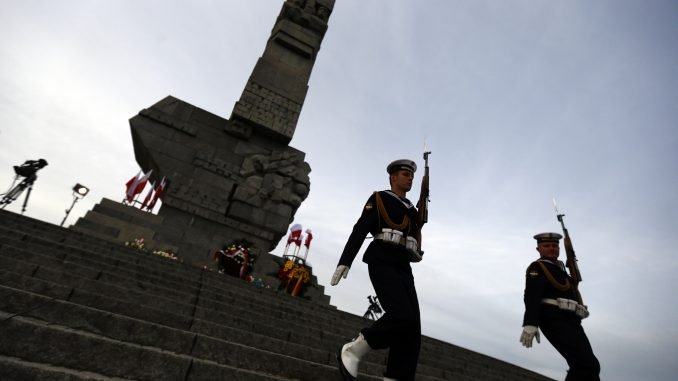
The Lithuanian president will pay a visit to Westerplatte where the first WWII battle in Europe took place in 1939. She will lay flowers at the Westerplatte Monument in memory of the coast defenders, her press service said in a statement.
Later on at the European Solidarity Centre in Gdansk, Grybauskaitė will join several other European heads of state and prominent historians for a discussions on the legacy of World War II and its lessons for Europe today.
Taking part in the two-part discussion, as planned, will be European Council President Donald Tusk, Polish President Bronislaw Komorowski, Ukrainian President Petro Poroshenko, Slovenian President Borut Pahor, Hungarian President Janos Ader, Czech President Milos Zeman, Estonian President Toomas Hendrik Ilves, Cypriot President Nicos Anastasiades, as well as historians Timothy Snyder, Yuri Afanasyev, Norman Davies, Georges-Henri Soutou, and Stefan Troebst.
France will be represented by Defence Minister Jean-Yves Le Drian and President Horst Koehler will represent Germany.
Following the discussions, the Lithuanian president will pay tribute to the Polish shipyard workers killed during anti-communist protests in 1970.
Grybauskaitė will also mark the end of World War Two in Lithuania. On 8 May, she will lay flowers at the Paneriai Memorial and will attend a concert dedicated to the victims of war at Vilnius Congress Hall.
More than 60 million people were killed in World War Two, mostly civilians. It involved 61 countries.
Lithuania stayed occupied by the Soviets for over four decades after WWII. 275,000 people were deported to labour camps in Siberia by 1952 and over 20,000 people, their family members and supporters were killed during the resistance movement.

Be the first to comment